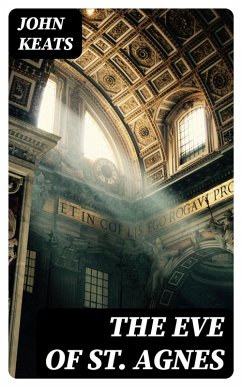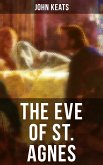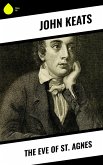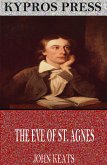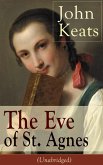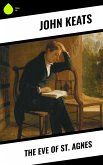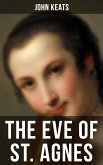John Keats' 'The Eve of St. Agnes' is a breathtaking piece of Romantic poetry that explores themes of love, desire, and superstition. Set in the Middle Ages, the poem tells the story of Madeline, a young woman who believes that she will see her future husband in a dream if she follows a set of rituals on the eve of St. Agnes. Keats' rich and sensual descriptions, combined with his use of imagery and symbolism, create a haunting and atmospheric work that captivates readers with its evocative language. The poem is considered a masterpiece of Keats' poetic style, which is characterized by its beauty and deep emotional resonance. Its exploration of the power of the imagination and the intersection of the real and the supernatural make it a significant work in the Romantic literary canon. John Keats, an iconic figure of the Romantic movement, was deeply influenced by the beauty of the natural world and the power of the human imagination. His own experiences with love and loss, as well as his fascination with mythology and folklore, inspired much of his poetic work. Keats' exploration of the themes of love, death, and the supernatural in 'The Eve of St. Agnes' reflects his own philosophical and aesthetic beliefs. The poem showcases Keats' skill as a poet and his ability to create vivid and poignant portrayals of human emotion. I highly recommend 'The Eve of St. Agnes' to readers who appreciate lyrical poetry that delves into the depths of human experience. Keats' masterful use of language and imagery creates a world that is both enchanting and thought-provoking, making this poem a must-read for anyone interested in the Romantic literary tradition.
Dieser Download kann aus rechtlichen Gründen nur mit Rechnungsadresse in A, B, BG, CY, CZ, D, DK, EW, E, FIN, F, GR, H, IRL, I, LT, L, LR, M, NL, PL, P, R, S, SLO, SK ausgeliefert werden.

